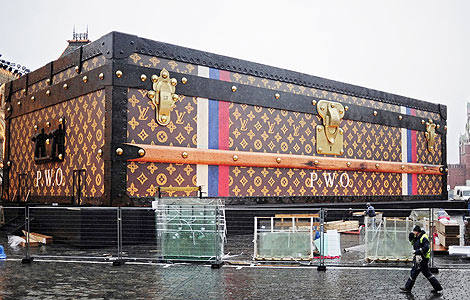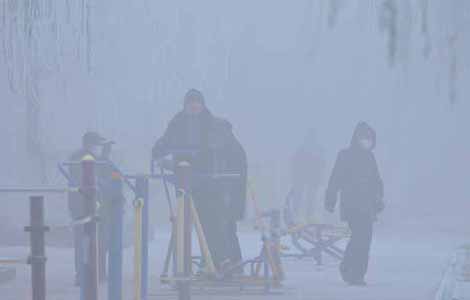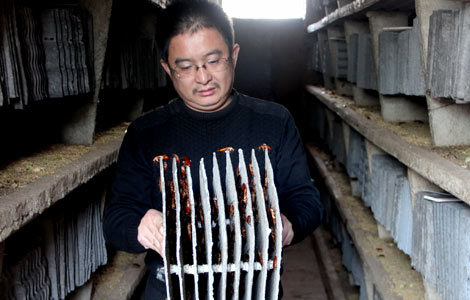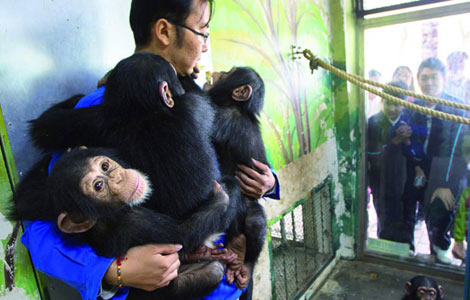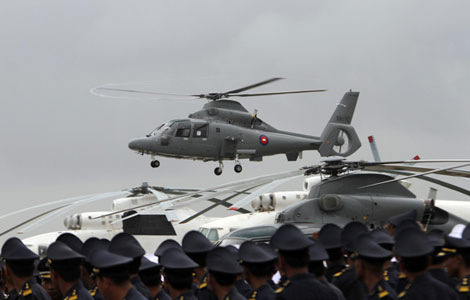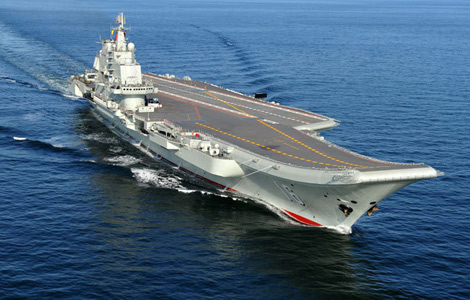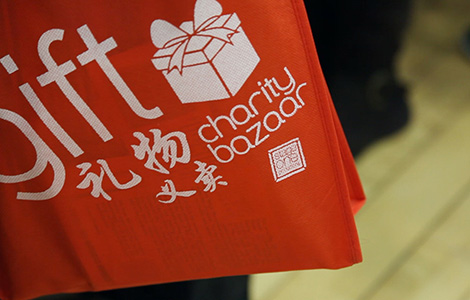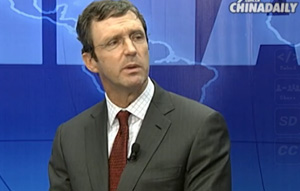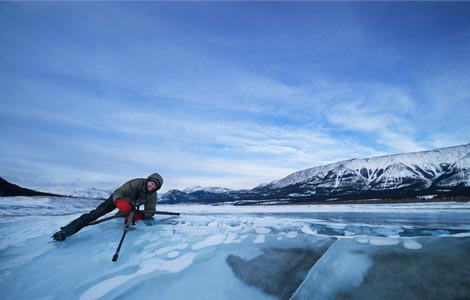Deal reached in Iranian nuclear talks
Updated: 2013-11-25 02:21
By Zhao Yanrong, Mo Jingxi and Wu Jiao (China Daily)
|
||||||||
Negotiations could become model for handling other international disputes
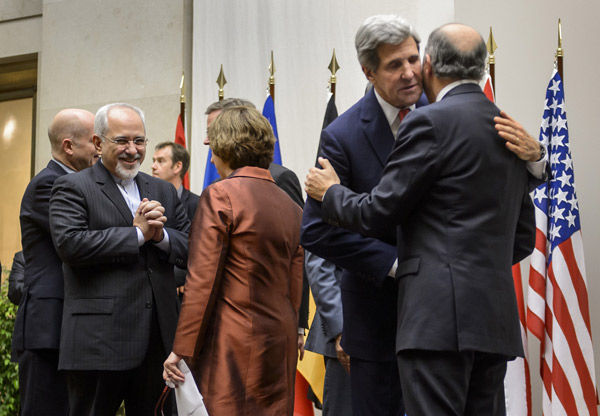 |
|
Iranian Foreign Minister Mohammad Javad Zarif (2nd from left) speaks with EU foreign policy chief Catherine Ashton (center) as US Secretary of State John Kerry (2nd from right) embraces French Foreign Minister Laurent Fabius after a statement released on Sunday in Geneva. World powers agreed to a landmark deal with Iran halting parts of its nuclear program in what US President Barack Obama called "an important first step".[Agencies] |
The landmark deal on Iran's nuclear program may change the Middle East's geopolitical landscape, analysts said.
But they warned that all sides must keep their promises and it will take arduous effort to reach a final agreement.
As China has been playing a constructive role in the multilateral talks, experts also said the primary agreement will enhance China's cooperation with the region.
The agreement between Iran and the five permanent members of the United Nations Security Council plus Germany, nailed down after more than four days of negotiations in Geneva, halted progress on Iran's nuclear program in exchange for limited sanctions relief.
Under the deal, Iran will commit to halt uranium enrichment above 5 percent and also to neutralize its stockpile of near-20 percent enriched uranium. Iran will also halt work at its plutonium reactor and provide access to nuclear inspectors.
In return, the United States would refrain from imposing new sanctions and will allow the Iranian government access to a portion of the revenue that it has been denied through sanctions.
The relief, valued at about $7 billion, includes suspending certain sanctions on gold and precious metals, Iran's auto sector and petrochemical exports, licensing safety-related repairs and inspections inside Iran for certain Iranian airlines, and allowing the purchase of Iranian oil at its current price, according to the White House.
China welcomed the deal, which helps safeguard peace and stability in the Middle East, said Foreign Minister Wang Yi, who attended the negotiations in Geneva.
The negotiations proved that no matter how difficult the issue could be, as long as all parties adhere to dialogue, patience and goodwill, a proper solution would be reached eventually, he said.
Some of the observers take the deal as the starting point of warming Iran-US ties, while others argue that it will still be difficult for the two countries to really build mutual trust.
Wu Sike, China's special envoy to the Middle East, said Iranian President Hassan Rouhani's flexible foreign policy has improved the country's relationships with Western countries, and the deal is a milestone for ties between Iran and the US.
"But more challenges await all parties on the way to reaching a final agreement," Wu added.
Most Viewed
Editor's Picks

|

|

|

|

|

|
Today's Top News
Air zone said not to affect routine flights
EU demands protection against US surveillance
China, Romania call ties 'exemplary'
First Web anti-monopoly lawsuit begins trial
Qualcomm in anti-monopoly probe
US troops pullout in Afghanistan
Li looks to closer relations
Nine detained over pipeline blast
US Weekly

|

|

